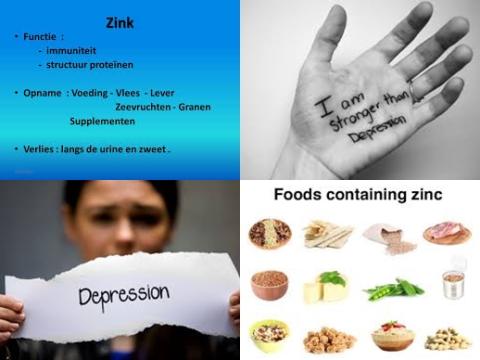
Objectives:
The associations between dietary zinc and iron intake and risk of depression remain controversial. Therefore, this meta-analysis (systematic review) has been conducted.
Do dietary zink and iron intake decrease risk of depression?
Study design:
This review article included a total of 9 studies for dietary zinc intake and 3 studies for dietary iron intake.
Results and conclusions:
The investigators found for the highest versus lowest dietary zinc a significant reduced risk of 33% [pooled RR = 0.67, 95% CI = 0.58-0.76] for depression.
The investigators found for the highest versus lowest dietary iron a significant reduced risk of 43% [pooled RR = 0.57, 95% CI = 0.34-0.95] for depression.
The investigators found in subgroup analysis by study design, the inverse association between dietary zinc intake and risk of depression remained significant in cohort studies and cross-sectional studies.
The investigators found the pooled RRs (95% CIs) for depression did not substantially change in the influence analysis and subgroup analysis by adjustment for body mass index (BMI).
The investigators concluded dietary zinc intake reduces risk of depression.
Original title:
Dietary zinc and iron intake and risk of depression: A meta-analysis by Li Z, Li B, [...], Zhang D.
Link:
https://www.ncbi.nlm.nih.gov/pubmed/28189077
Additional information of El Mondo:
Find here more information/studies about zinc and review article/95% CI.